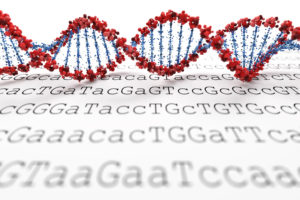
In April 2018, a series of 27 papers representing the most comprehensive genomic analysis of human cancers to date was published in Cell Press journals.
The collection constitutes the final outputs from the Cancer Genome Atlas (TCGA) project, a collaboration between the National Cancer Institute (NCI) and the National Human Genome Research Institute (NHGRI) involving analysis of over 11,000 tumors representing 33 different cancers. The many research teams involved analyzed tumor DNA, mRNA, miRNA and chromatin, comparing them to matched normal cellular genomes to perform a complete molecular characterization of cancer-specific changes. The results have been presented with much hope that open access to this type of comprehensive analysis will build on recent advances in understanding tumor biology and spur further progress in developing new approaches to treatment. (See this news item for more detail).
The Pan-Cancer Atlas results are collected on a cell.com portal, where they are presented in three collections grouped by topic: Cell of Origin, Oncogenic Processes and Signaling Pathways. Each collection is accompanied by a “Flagship” paper introducing the topic and summarizing the findings. It seems fitting that these findings have been published in #HumanGenomeMonth. This comprehensive analysis of the genomic and metagenomic profiles of tumors illustrates one powerful application of the type of genomic analysis pioneered by the original Human Genome Project, and shows just how much has been made possible since the initial publication of the human genome fifteen years ago.
The flagship paper in the Cell of Origin studies (Hoadley et al., Cell 173, p291–304.e6) asks the question “Can cancers be classified and treated based on molecular signature rather than cell/tissue of origin?”, and goes on to explain how the research studies were able to identify 28 distinct molecular subtypes within the 33 different tumor types, some of which crossed conventional cell or tissue type classifications. They looked at aneuploidy, DNA methylation, mRNA and miRNA and investigated the relationships between cell or tissue of origin and molecular tumor characteristics. Key findings were that cell of origin influences, but does not fully determine tumor classification, and that full molecular characterization of subtypes reveals groupings that may lead to changes in treatment options, or could be used to identify tumor types where the cell of origin is not known.
While malignancies arising from the same anatomical site have traditionally been treated clinically as a single entity, histologic and molecular sub-classifications are now routinely used to determine treatments for subtypes of lung, breast, gastrointestinal, skin and bone marrow derived malignancies. As drugs become increasingly clinically available to target such cancer-driving pathway targets as ALK, EGFR, ERBB2, ERα, KIT, BRAF, and ABL1, the traditional system of anatomic cancer classification should be supplemented by a classification system based on molecular alterations shared by tumors across different tissue types. Hoadley et al, 2018.
The Signaling Pathways flagship paper, by Sanchez-Vega et al (Cell 173, p321–337.e10), addresses the alterations in signaling pathways that contribute to the uncontrolled growth of cancer cells. The goal here was to identify the genes and pathways that are altered across all the tumor types studied. Key findings were that more than half the tumor samples studied had at least one potentially actionable alteration in a signaling pathway, and that many tumors had alterations in more than one pathway–suggesting that molecular characterization of tumors could result in the identification of potentially useful combination therapies.
The authors of the Oncogenic Processes flagship publication (Ding et al., Cell 173, 303–320e10) call this series of publications a historic moment at “the End of the Beginning of Cancer Genomics”. For some, if not all cancers, it also brings hope that the Pan-Cancer Atlas data, coupled with the availability of easier ways to analyze individual tumors at the molecular level, also signals the beginning of the end.
Links:
News coverage of this topic
- New ‘Pan-Cancer’ analysis reveals the common roots of different cancers
- NIH completes in-depth genomic analysis of 33 cancer types.
Isobel Maciver
Latest posts by Isobel Maciver (see all)
- 3D Cell Culture Models: Challenges for Cell-Based Assays - August 12, 2021
- Measuring Changing Metabolism in Cancer Cells - May 4, 2021
- A Quick Method for A Tailing PCR Products - July 8, 2019
